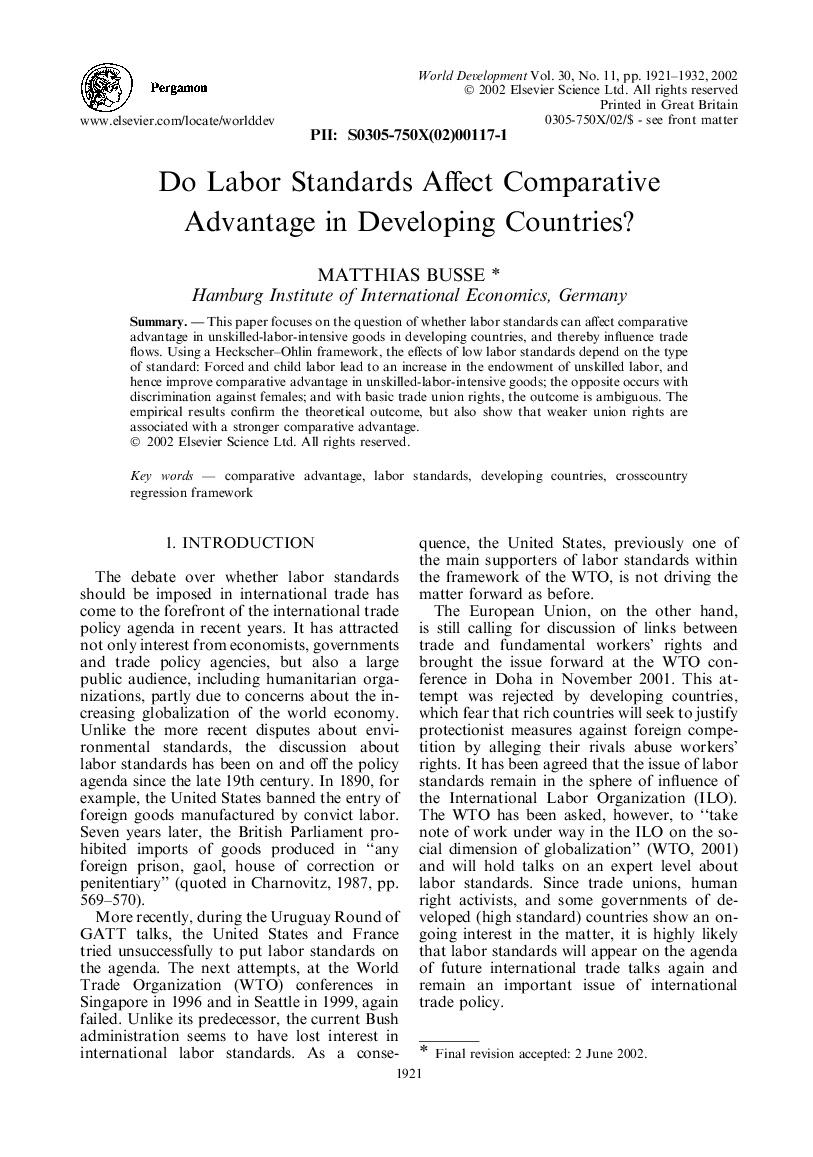| Article ID | Journal | Published Year | Pages | File Type |
|---|---|---|---|---|
| 992662 | World Development | 2002 | 12 Pages |
Abstract
This paper focuses on the question of whether labor standards can affect comparative advantage in unskilled-labor-intensive goods in developing countries, and thereby influence trade flows. Using a Heckscher–Ohlin framework, the effects of low labor standards depend on the type of standard: Forced and child labor lead to an increase in the endowment of unskilled labor, and hence improve comparative advantage in unskilled-labor-intensive goods; the opposite occurs with discrimination against females; and with basic trade union rights, the outcome is ambiguous. The empirical results confirm the theoretical outcome, but also show that weaker union rights are associated with a stronger comparative advantage.
Related Topics
Social Sciences and Humanities
Economics, Econometrics and Finance
Economics and Econometrics
Authors
Matthias Busse,
